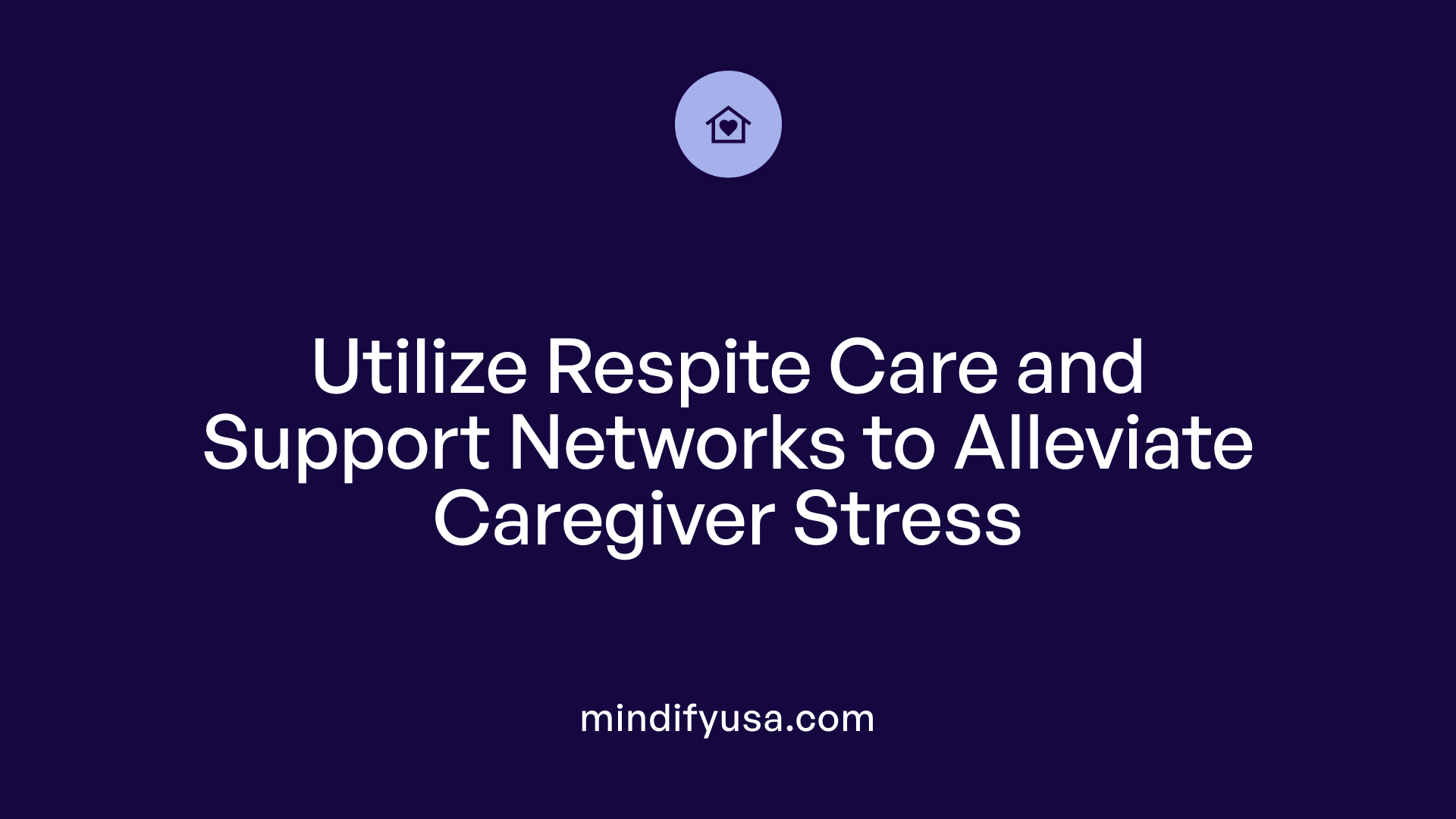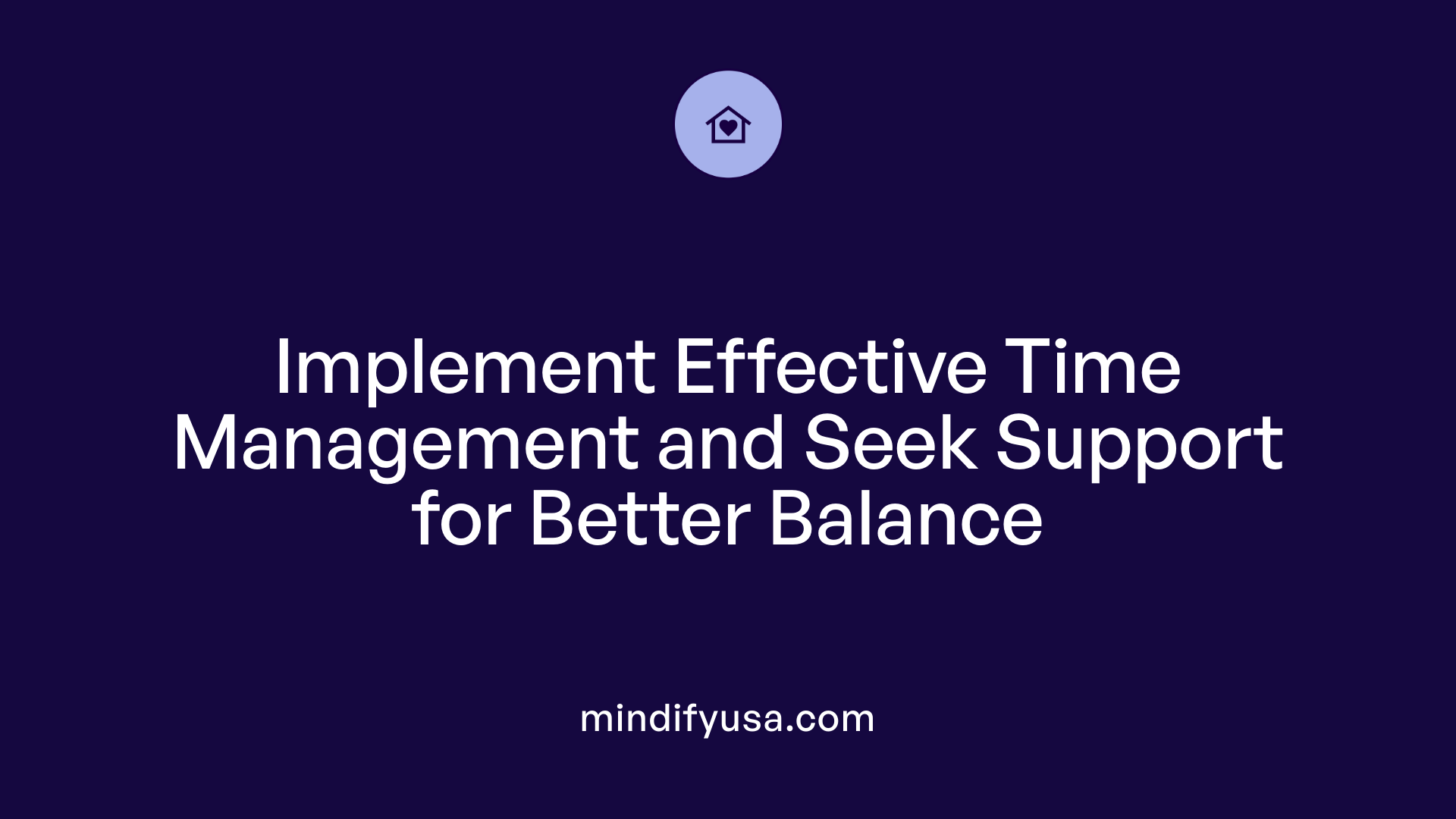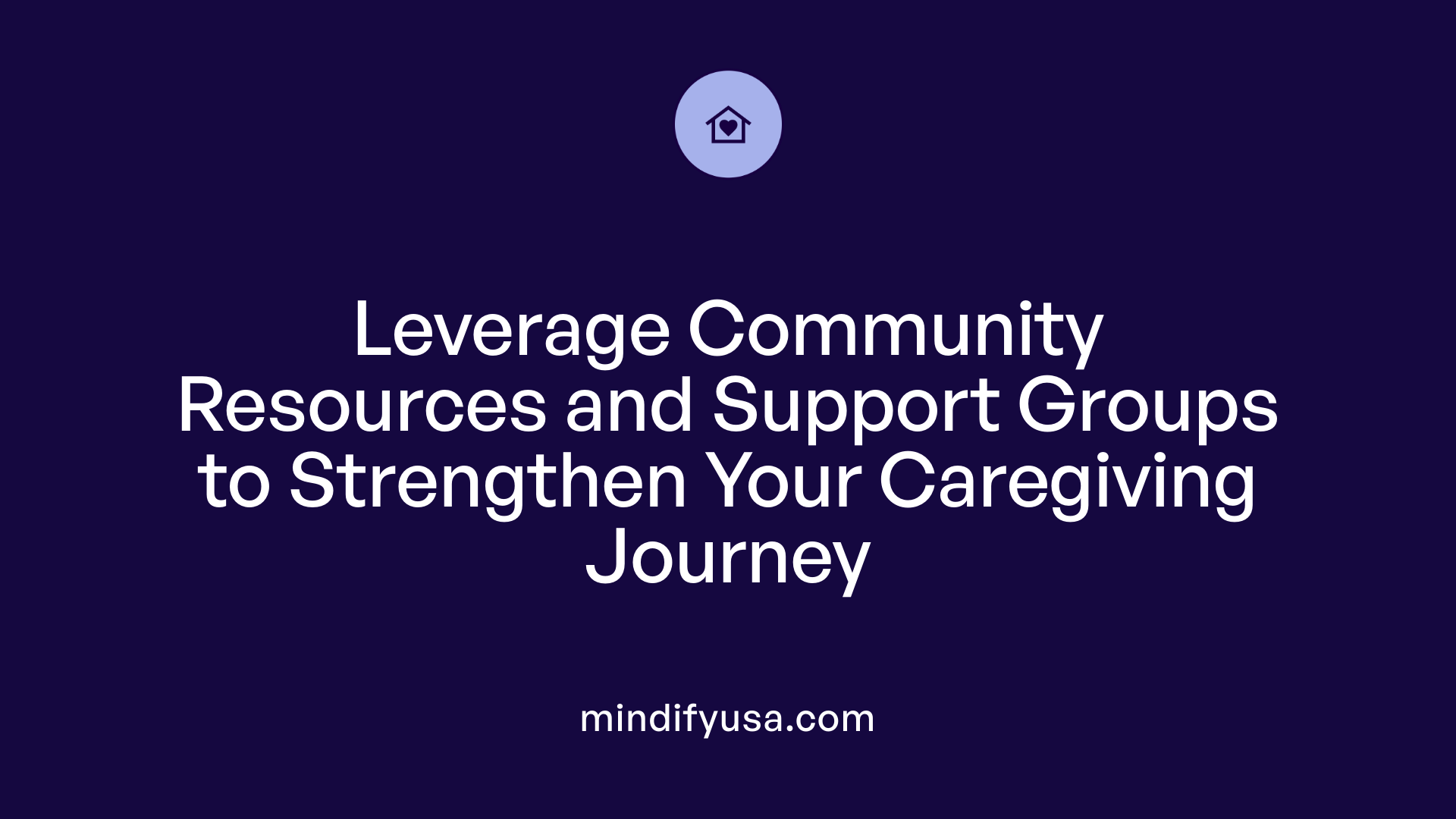Understanding the Complexities of Caregiving
Caring for aging parents is a profound act of love and obligation, yet it often comes with substantial emotional, physical, and logistical challenges. As the aging population grows and caregiving responsibilities intensify, understanding how to manage associated stress becomes essential for maintaining well-being and quality of life for both caregivers and their loved ones.
The Reality of Caregiver Stress and Burnout

What are the common signs and symptoms of caregiver burnout and stress?
Caregiver burnout manifests through a variety of emotional, physical, and behavioral symptoms. Emotional exhaustion is one of the most prominent signs, with caregivers reporting feelings of hopelessness, irritability, anxiety, and depression. Physically, they often experience fatigue, persistent headaches, sleep disturbances, and changes in appetite or weight. These symptoms can lower immunity, making caregivers more susceptible to illness.
Social withdrawal is another indicator, where caregivers may pull away from friends and family, neglecting their own health and happiness. Mood swings, frustration, and anger—sometimes directed at the loved ones they care for—are common. Some caregivers also report emotional numbness or a loss of joy in daily activities. The sensation of being overwhelmed and the desire to escape the role are serious signals that internal support and self-care are urgently needed.
Recognizing these early signs allows caregivers to seek help, engage in stress-relief activities, and prevent more severe psychological issues, including suicidal thoughts or a complete loss of purpose.
What are the signs and symptoms of caregiver stress?
Caregiver stress can be less intense initially but still significantly impact mental and physical health. Typical signs include feelings of exhaustion and being overwhelmed by responsibilities.
Anxieties about future uncertainties, irritability, and loneliness are common emotional responses. Caregivers may struggle with sleep problems, feeling sad or hopeless, and physical pain such as headaches or muscle tension. Personal self-care often gets neglected, and some may turn to alcohol or drugs as coping mechanisms.
These symptoms signal that the caregiver is at risk of burnout and highlights the need for intervention. Addressing these signs early with support from family, friends, or professionals can help restore balance and well-being.
| Signs and Symptoms | Description | Common Effects |
|---|---|---|
| Emotional Exhaustion | Feelings of hopelessness, irritability, anxiety, depression | Mood swings, anger, emotional numbness |
| Physical Signs | Fatigue, headaches, sleep issues, weight changes | Lowered immunity, frequent illness |
| Behavioral Changes | Withdrawal from social activities, neglect of self-care | Decreased quality of life, increased stress levels |
| Additional Signs | Feelings of being overwhelmed, thoughts of escape | Risk of severe mental health issues |
More about caregiver stress and burnout
Long-term caregiver stress, if left unaddressed, can lead to serious health consequences including chronic illnesses like hypertension, sleep disorders, and weakened immune function. It can also impact the physical, emotional, and financial aspects of both the caregiver and the person receiving care.
Understanding the signs and symptoms early creates an opportunity to implement effective coping strategies such as seeking social support, engaging in self-care activities, and utilizing respite care services. Recognizing these indicators is vital for maintaining health and quality of life for caregivers.
Practical Strategies for Managing Stress

What practical strategies can help caregivers manage stress effectively?
Managing caregiver stress involves a combination of proactive techniques and resource utilization. One of the most important steps is seeking and accepting help from family, friends, and community services. Creating a list of support activities and delegating tasks makes responsibilities more manageable.
Respite care plays a crucial role by offering caregivers temporary breaks—whether through in-home assistance, adult day centers, or temporary stays at care facilities. These breaks refresh caregivers physically and emotionally, preventing burnout.
Focusing on what is within control reduces feelings of helplessness. Setting realistic goals and breaking down large tasks into smaller, manageable steps can make caregiving less overwhelming.
Connecting with support groups and community resources offers emotional support, practical advice, and shared experiences. Maintaining communication with loved ones and social contacts helps combat feelings of isolation.
Self-care should not be overlooked. Regular exercise, a nutritious diet, sufficient sleep, and relaxation techniques such as meditation or deep breathing are essential for mental and physical health.
Educating oneself about the specific needs of the care recipient and planning ahead for legal and financial matters can reduce unforeseen stress.
Honest communication with family members and professionals promotes understanding and coordinated care, further easing psychological burden.
How can caregivers prevent burnout and maintain their well-being?
Preventing burnout requires deliberate attention to personal health and emotional resilience. Prioritize self-care activities—whether it's taking time for hobbies, exercise, or quiet relaxation—to recharge.
Setting clear boundaries about caregiving roles helps prevent responsibilities from becoming all-consuming. Learning to say no and managing expectations with family members is vital.
Seeking emotional and social support from support groups, mental health professionals, or trusted friends provides an outlet to express feelings and gain advice.
Regularly taking breaks, utilizing respite care, and delegating tasks protect against physical exhaustion and emotional fatigue.
Maintaining a healthy lifestyle through balanced nutrition, physical activity, and sufficient sleep supports overall well-being.
Finally, staying informed about the health condition of the care recipient and leveraging available community resources reduces uncertainty and eases caregiving demands.
Implementing these strategies helps caregivers sustain their health, provides better care for loved ones, and preserves their quality of life.
The Role of Self-Care and Emotional Resilience
What self-care practices are recommended to improve caregivers' mental and emotional health?
Caregivers face significant mental and emotional challenges, making self-care essential for maintaining their well-being. Practical self-care practices include engaging in relaxation techniques such as yoga, meditation, and deep breathing exercises, which help reduce stress and promote relaxation. Maintaining social connections through support groups, whether local or online, offers emotional validation, shared experiences, and a sense of community, all of which combat feelings of isolation.
Prioritizing adequate sleep is critical, as rest revitalizes mental and physical health. Eating a balanced diet rich in vitamins and anti-inflammatory foods can improve energy levels and immune function. Regular physical activity, like walking, stretching, or structured exercise routines, also supports mental clarity and emotional stability.
Recognizing early signs of stress and burnout allows caregivers to seek support before issues escalate. Utilizing respite care services provides temporary relief, giving caregivers time to rest and recharge. Consulting healthcare professionals or mental health specialists can help address feelings of anxiety, depression, or overwhelm.
Practicing self-compassion by being kind to oneself during tough times and setting realistic goals helps prevent guilt and frustration. Establishing boundaries about caregiving tasks and learning to say no when overwhelmed are vital steps towards resilience.
Overall, incorporating these self-care practices into daily routines can significantly bolster emotional resilience, enabling caregivers to manage their responsibilities more effectively and maintain their health amid ongoing caregiving duties.
Balancing Responsibilities: Family, Work, and Personal Life

How can caregivers balance their responsibilities with personal and family life?
Caregivers often find themselves overwhelmed trying to serve their loved ones while managing their personal needs and work commitments. To strike a healthy balance, establishing clear boundaries is crucial. Caregivers should create detailed care plans that outline daily tasks, appointments, and emergency protocols to manage responsibilities more efficiently.
Seeking support from family members, friends, or professional services can lighten the load. Support groups specifically designed for caregivers can also provide emotional relief and practical advice. Additionally, many employers recognize the challenges faced by caregiving employees. Flexible work arrangements, such as adjustable schedules, telecommuting options, and Paid Time Off (PTO), can significantly ease work-life conflicts.
Prioritizing self-care is vital in preventing burnout. Activities like regular exercise, nutritious eating, and taking brief breaks or respite time help caregivers maintain their physical and mental health. Open communication with family members about caregiving responsibilities encourages shared duties and emotional support.
Similarly, transparent discussions with employers about needs for flexibility or leave ensure necessary accommodations are met. Overall, managing time effectively, asking for help, and prioritizing personal well-being are essential strategies.
By implementing these practices, caregivers can better balance their roles, ensuring their loved ones receive care without neglecting their own health and happiness.
Additional Support Strategies and Resources
Multiple resources are available to assist caregivers in achieving this balance. Community programs like CareLink offer services including care coordination, in-home care, meals, and family caregiver support. Support from local or online caregiver groups can provide emotional relief and practical tips.
Incorporating stress-relief activities, setting realistic goals, and celebrating small victories help sustain morale. Recognizing personal limits and requesting help when needed are lifelong strategies to keep caregiving manageable.
By fostering open dialogue and creating a robust support system, caregivers can maintain their responsibilities effectively while preserving their personal health and relationships.
Utilizing Resources and Building Support Networks
 Caregivers have a variety of resources and coping mechanisms available to help them manage their responsibilities and reduce stress. Community services such as adult day care centers, home healthcare support, senior centers, and meal programs play a significant role in providing practical assistance and relieving some caregiving burdens.
Caregivers have a variety of resources and coping mechanisms available to help them manage their responsibilities and reduce stress. Community services such as adult day care centers, home healthcare support, senior centers, and meal programs play a significant role in providing practical assistance and relieving some caregiving burdens.
Support organizations like the Family Caregiver Alliance and local caregiver groups offer emotional support, education, and practical advice. Many of these organizations provide access to caregiver support groups and short-term counseling, often at low or no cost, which can help caregivers process their feelings and learn stress management techniques.
Furthermore, online tools and resources are invaluable. Websites such as the Eldercare Locator, Medicare.gov, and Alzheimers.gov provide extensive information on medical care options, legal and financial planning, and disease-specific guidance—especially for conditions like Alzheimer's and dementia. These platforms connect caregivers to local services and educational resources.
Educational workshops and peer support groups serve as additional avenues for learning effective caregiving strategies and sharing personal experiences. Faith-based organizations and culturally-specific groups can offer tailored support that respects individual backgrounds and beliefs.
By engaging with these resources, caregivers can better manage emotional stress, prevent burnout, and improve their overall well-being. Creating a strong support network through community involvement, organizational support, and educational resources empowers caregivers to handle their role more effectively.
Prioritizing Well-Being in Caregiving
Managing caregiver stress while caring for aging parents is a multifaceted challenge that requires awareness, proactive strategies, and support. Recognizing early signs of burnout, employing practical stress management techniques, establishing a robust support network, and prioritizing self-care are essential steps to sustain personal health and ensure high-quality care for loved ones. By embracing these approaches and utilizing available resources, caregivers can find balance, resilience, and fulfillment in their vital role.
References
- 6 Tips on How to Cope with the Stress of Taking Care of Elderly ...
- Caregiver stress: 10 ways to take care of yourself - Atria Senior Living
- Taking Care of Yourself: Tips for Caregivers
- 12 Tips For Caring For Elderly Parents (Caregiving Guide)
- Managing the Stress of the Sandwich Generation: Squeezed ...
- Caregiver Burnout: What It Is, Symptoms & Prevention
- Avoiding Burnout when Caring for Elderly Parents






































































































